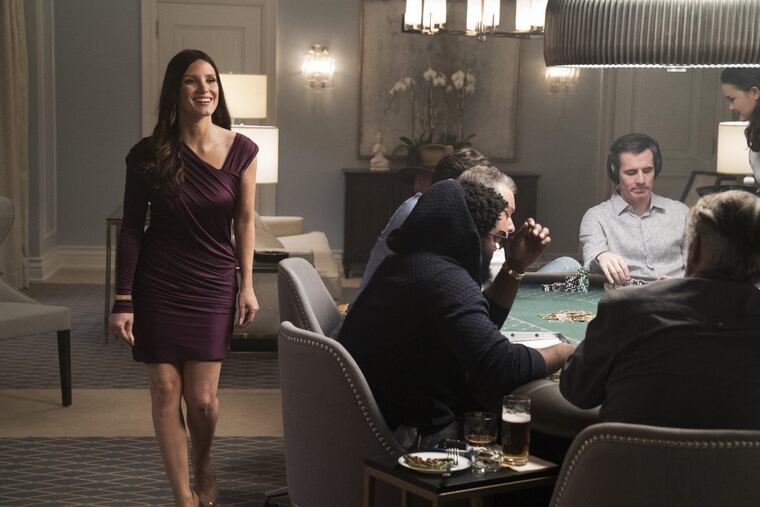'Molly's Game': Aaron Sorkin makes the movie of the #MeToo year
In "Molly's Game," writer-director Aaron Sorkin tells the true story of Molly Bloom, who for years ran an illegal poker ring for Hollywood celebrities.

If timing is everything, Molly's Game is the movie of the #MeToo year.
Aaron Sorkin's entertaining new film is a tough, smart look at the way some Hollywood heavyweights treat women. Spoiler: not well. But it's also more than that – it touches on broader legal and labor issues and systems that disadvantage women everywhere, in different ways.
It's based on the true story of Molly Bloom (Jessica Chastain), a derailed Olympic skier who shows up in Los Angeles looking for work and lands a temp job for an abusive boss. It's a great place for the movie to start – there is showbiz glamor to come, but early scenes show how easily a bad boss can exploit cherished American values of hard work, hustle, and bootstrapping.
You love Chastain in this role because of her steely stature and because she brings the residue of past roles playing fearless, ultra-competent women. If she can handle bin Laden, she can handle this guy and his tyrannical bagel orders.
Bloom is smart, clever, competitive – attributes shaped in her skiing days by a tough-love father (Kevin Costner). When she learns her boss has a side business running an illegal poker game for local swells and Hollywood celebrities, she sees an opportunity. Bloom starts as a gofer, making herself useful and quickly indispensable – in a blink, she's running it.
If being a temp was tough, being "management" is no bargain. Molly's business is managing alpha-male egos, and Sorkin shows just how treacherous and exhausting that can be. We see men vie for Bloom's attention, not as the expression of desire or attraction, but as a way of competing with one another. Ego and envy crowd the room – Bloom, despite sending clear and repeated signals that she's all business, is vulnerable to all of it.
Sorkin neatly folds her story into the way he portrays the nature of poker itself – a game of math and probability, but also a forum for psychological gamesmanship that is often ruthless.
Michael Cera plays a former hot-shot actor turned full-time card shark, and he's merciless with the others at the table — men of little ability and lots of money who mostly want to rub elbows with celebrities. Other players (including Bill Camp) are just good enough to make the game interesting, to give it credibility, and Cera's character makes Machiavellian use of them, as well. When at last he turns on Molly, it's a mismatch — she has no cards to play.
So she's off to New York, organizing another game, but there are more problems, with more men, and some of them are serious crooks. By this time, Bloom is self-medicating, and when wiseguys muscle in, she soon finds herself spent, and under arrest.
The legal system turns out to be another stacked deck – prosecutors lean on Bloom as they chase bigger fish. Bloom fights back with typical ferocity, leveraging the best lawyer (Idris Elba) she can find. Their platonic relationship gives the movie a timely second wind – Elba and Chastain have fun with Sorkin's rat-a-tat dialogue, and the knotty story of Bloom's legal morass packs surprising punch.
#MeToo advocates have wanted men to step up and make a forceful statement on behalf of women. Well, Sorkin has written a doozy for Elba, who crushes it. Sorkin also adds emotional depth to the relationship by showing the attorney tutoring his own teen daughter. In him, Bloom sees her own tough-love dad, and we see her bitterness dissolve.
It's one of several great scenes for Chastain, who makes many shrewd choices. She always makes Bloom accountable – if you've been running an illegal poker ring, you don't have a strong moral position.
Bloom knows it. But she thinks prosecutors are putting the screws to the wrong person. She thinks the plea deal is a bad one and takes her chances in court.
Calling their bluff, if you will.